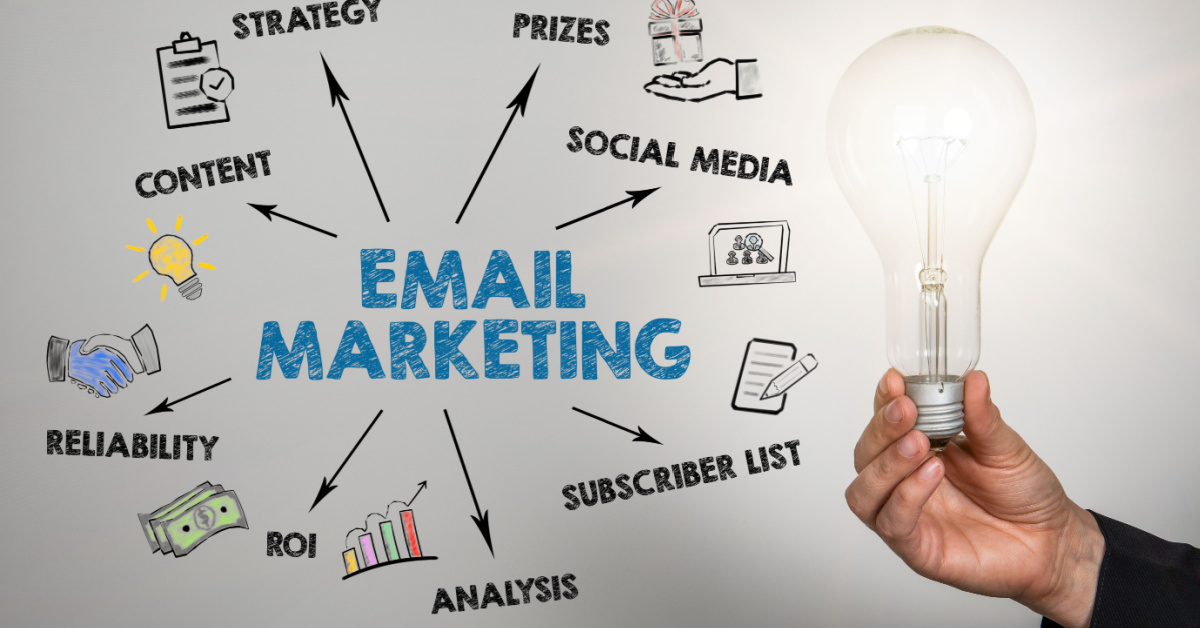
Why Email Marketing on a Budget?
Email marketing continues to be one of the most affordable and efficient methods for connecting with and engaging your audience. Unlike other marketing channels that require hefty investments, email marketing offers an affordable means to target both current and potential customers. You can build meaningful connections, nurture leads, and drive conversions using the right tactics. But to succeed, you must prioritize both quality and cost-efficiency — a balancing act that this guide will help you achieve.
1. Build a Quality Email List
A strong and targeted email list is essential for building a successful email marketing campaign. Remember, it’s not about the number of contacts you have but about how engaged and relevant those contacts are.
Use Sign-Up Forms: Place these on high-traffic pages of your website, such as blog posts or landing pages.
Offer Incentives: Try giving away free e-books, guides, or discount codes for signing up.
Engage Social Media Followers: Promote your email sign-up forms on platforms where your followers are already interacting with your brand.
2. Offer Value with Free Content
Everyone loves free resources, and providing valuable content can be a powerful way to retain and nurture subscribers. Free resources could include:
Guides or E-Books: For example, a digital agency could offer a guide on SEO marketing.
Templates or Checklists: If you’re in software development, provide a checklist for launching a new product.
By offering genuine value, you build trust and keep your audience interested.
3. Segment Your Audience
Audience segmentation can drastically improve your email marketing results. By grouping your audience based on criteria such as behavior, interests, or purchase history, you can tailor your messages to match specific needs, increasing the likelihood of engagement.
Demographic Segmentation: Segment by age, location, or profession if relevant.
Behavioral Segmentation: Tailor content to the actions subscribers have taken, such as previous purchases or website visits.
4. Create Engaging and Relevant Content
High-quality, relevant content is key to keeping your audience engaged. Instead of sending generic messages, focus on content that resonates with their needs or addresses common challenges.
Personalize Messages: Include the recipient’s name or mention past interactions when possible.
Be Concise and Clear: Write compelling subject lines and keep messages straightforward. Your goal is to grab attention and communicate value quickly.
5. Use Automation Tools
Automation helps simplify email campaigns, allowing you to save time and increase efficiency. With tools like Mailchimp, Constant Contact, or ActiveCampaign, you can automate welcome emails, follow-ups, or reminders.
Welcome Series: Automatically send a welcome email to new subscribers.
Abandoned Cart Reminders: Use automation to remind customers of items left in their shopping cart.
Automation tools help small businesses and digital agencies work smarter, providing a huge advantage without extra cost.
6. Leverage Analytics to Refine Strategies
Tracking and analyzing your email marketing performance is essential for refining your strategy. Analytics offer insights into how your audience interacts with emails, which can help you make data-driven adjustments.
Click-Through Rates (CTR): Track the number of people who click on links in your emails to see what topics interest them most.
Conversion Rates: Know which emails directly lead to sales or other actions. This is particularly useful for agencies offering SEO marketing or PPC management.
7. Focus on Mobile Optimization
More than 50% of emails are now accessed on mobile devices. To ensure your emails look great on any device, prioritize mobile-friendly design.
Use Responsive Design: Ensure your emails adjust to any screen size.
Short Subject Lines: Keep your subject lines brief so they display fully on mobile screens.
8. Design Visually Appealing Emails
Effective design enhances the appeal and professionalism of your emails. A thoughtfully designed email improves readability and boosts user engagement.
Use Clean Layouts: Avoid overcrowding your email with too much text or images.
Include Branding Elements: Add your logo, brand colors, and consistent fonts to build brand recognition.
9. Conduct A/B Testing
A/B testing entails sending two variations of an email to determine which one yields better results. This strategy helps you refine elements like subject lines, content length, and images.
Test Subject Lines: The subject line can significantly impact whether your email gets opened.
Test Calls to Action (CTA): Experiment with different CTA buttons to see what drives clicks. For instance, a digital agency might test CTAs like “Learn More” versus “Get Started.”
10. Monitor Deliverability and Bounce Rates
Deliverability is key to making sure your emails successfully reach their intended audience. Monitoring your bounce rates and other metrics helps keep your list clean and effective.
Check Spam Triggers: Avoid certain words and phrases that could send your emails to spam.
Manage Bounces: Consistently clean your email list by removing inactive or invalid addresses.
Conclusion
Email marketing on a budget doesn’t have to be a challenge. By focusing on building a quality list, segmenting your audience, creating engaging content, and leveraging automation tools, you can make every dollar count. Using these ten strategies, you can build effective, engaging email campaigns without overspending. Keep in mind, that the key is to prioritize relevance and value.







